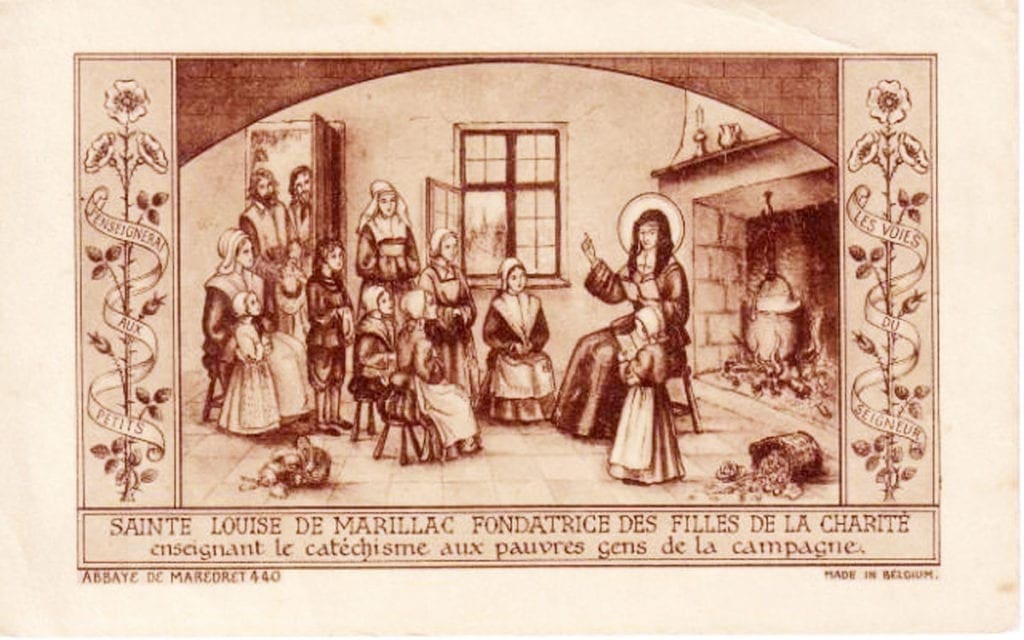There is a fascinating article, The Core Values of Vincentian Education by Louise Sullivan D.C., whose premise is that education was central to the Vincentian mission of evangelization of and service to the poor and as such had values unique to it. Sr. Louise’s thorough examination of the documentation relative to education in the lives and writings of Vincent de Paul and Louise de Marillac revealed eight “core values” central to their common mission of evangelization and to the educational process.
She writes:
The names of Vincent de Paul and… that of his friend and collaborator of thirty-six years, Louise de Marillac, have become synonymous with charity…
…So numerous were the hospitals, so moving the works with abandoned infants, beggars, and wounded soldiers, that educational institutions – seminaries and schools – seemed almost prosaic and consequently of lesser importance. A study of the social order in seventeenth-century France can leave one with the impression that, while Vincent de Paul, Louise de Marillac, and their followers were responding to the urgent cries of a suffering society, the Jesuits and the Ursulines were providing for the educational needs of its youth. [There was a] perception that, for the Priests and Brothers of the Mission and the Daughters of Charity, education was a relatively minor facet of their far more significant contribution to the evangelization of the rural poor, health care, and social welfare.
On the contrary, both Vincent de Paul and Louise de Marillac were teachers and as such were keenly aware of the vital place of education in a holistic approach to service of the poor.

“St. Louise de Marillac Foundress of the Daughters of Charity teaching catechism to poor country people”
This video, “Many Dreams, One Mission” was produced by DePaul University’s Office of Mission and Values.
From the Conclusion of The Core Values of Vincentian Education by Louise Sullivan D.C.:
Indeed, education was the most far-reaching form of service since it enabled the poor to break the cycle of poverty, find meaningful employment, and thus enhance their self-respect and confidence. Moreover, by providing quality education to all, the Vincentian institution also was able to transmit this vision of service to others who would later carry it on in their own lives.







0 Comments